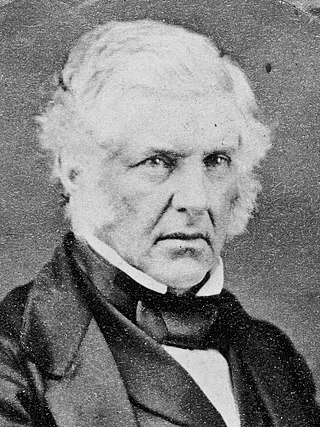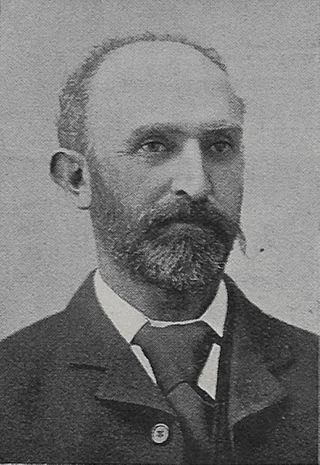Related Research Articles

Sir Francis Dillon Bell was a New Zealand politician of the late 19th century. He served as New Zealand's third Minister of Finance, and later as its third Speaker of the House. The town of Bell Block near New Plymouth – on land Bell bought from the Puketapu iwi in 1849 – is named after him, as is Bell Street, Whanganui. Bell's son, Francis Henry Dillon Bell, became the first New Zealand born Prime Minister in 1925.
William Morgan Crompton was a New Zealand politician.
Charles Brown was a New Zealand politician from the Taranaki area.

New Plymouth is a New Zealand parliamentary electorate. It was first created for the 1st New Zealand Parliament in 1853 and has existed since, with one 32-year interruption. The electorate was initially called Town of New Plymouth.

Whanganui is a New Zealand parliamentary electorate. It was first established in 1860 for the 3rd Parliament and has existed continuously since then.

Te Tai Hauāuru is a New Zealand parliamentary Māori electorate, returning one Member of Parliament to the New Zealand House of Representatives, that was first formed for the 1996 election. The electorate was represented by Tariana Turia from 2002 to 2014, first for the Labour Party and then for the Māori Party. Turia retired and was succeeded in 2014 by Labour's Adrian Rurawhe who retained the seat in 2017 and again in 2020.

Frederic Alonzo Carrington was a 19th-century New Zealand politician and surveyor. He is regarded as the Father of New Plymouth.
Omata was a New Zealand electorate. It was located in Taranaki and based on the township of Omata. One of the original 24 electorates, it existed from 1853 to 1870.
Patea is a former New Zealand electorate in south Taranaki. It existed from 1893 to 1963.
Thames is a former New Zealand electorate, in the Thames-Coromandel District. It existed from 1871 to 1946.
Christchurch was a parliamentary electorate in Christchurch, New Zealand. It existed three times. Originally it was the Town of Christchurch from 1853 to 1860. From the 1860–1861 election to the 1871 election, it existed as City of Christchurch. It then existed from the 1875–1876 election until the 1881 election. The last period was from the 1890 election to the 1905 election. Since the 1946 election, a similarly named electorate called Christchurch Central has been in existence.
Northern Division was a two-member parliamentary electorate in the Auckland Region, New Zealand from 1853 to 1870.

Thomas King was a 19th-century New Zealand politician. He served in the 1st and 2nd Parliaments, and was otherwise active in New Plymouth. He was one of the first settlers, coming out on the first ship to New Plymouth in 1841.
The 4th New Zealand Parliament was a term of the Parliament of New Zealand.

The Town of Christchurch by-election in 1860 was triggered by the resignation of Richard Packer as the Member of the House of Representatives for the Town of Christchurch electorate, and occurred during the term of the 2nd New Zealand Parliament. The previous representative of the electorate, the politician Henry Sewell, had returned after three years in England and the general expectation was that Sewell would be the sole contender for election. The Lyttelton Times wrote several provocative editorials, generally endorsing Sewell for his obvious ability, but criticising him for not publicly talking about his policies and plans. Sewell eventually arranged a public meeting the evening prior to nomination day; this was the only public meeting during the election campaign. After a lengthy address, which was favourably received by the Lyttelton Times, a second contender for the office put his name forward at that meeting: the publican Michael Hart. Sewell, a former premier and one of New Zealand's most senior politicians at the time, was successful against the political novice Hart.

Charles Cowper was an Australian politician, pastoralist and senior public servant, the son of Sir Charles Cowper who served as Premier of New South Wales on five separate occasions between 1856 and 1870. During the period 1860 to 1865 Cowper was the elected member of various electorates in support of his father's political faction. In the late 1860s he invested in pastoral runs in south-west Queensland, which ultimately led to financial losses due to prolonged drought conditions. After a short stint as Police Magistrate at Bourke, Cowper was appointed as the Water Police Magistrate in Sydney. In 1874 he was appointed Sheriff of New South Wales, a position he held until his retirement in 1896.

The 1865 Town of New Plymouth by-election was a by-election held in the Town of New Plymouth electorate during the 3rd New Zealand Parliament, on 19 May 1865. The by-election was caused by the resignation of the incumbent, Charles Brown, and was won unopposed by Henry Sewell. Whilst Sewell was not a local resident, he was a member of the government through his appointment to the Legislative Council, the upper house of Parliament. Sewell accepted the invitation to represent the electorate, as him becoming a member of the lower house was seen to strengthen the government.

The Hokitika by-election 1878 was a by-election held in the multi-member Hokitika electorate during the 6th New Zealand Parliament, on 26 June 1878. The by-election was caused by the resignation of incumbent MP Charles Button and was won by Seymour Thorne George, who defeated Gerard George Fitzgerald. Thorne George was suggested as a candidate by the premier, Sir George Grey; he was the Premier's nephew, and lived in the North Island.
The 1864 Town of New Plymouth by-election was a by-election held on 18 November 1864 in the Town of New Plymouth electorate during the 3rd New Zealand Parliament.
The 1867 Town of New Plymouth by-election was a by-election held on 29 April 1867 in the Town of New Plymouth electorate during the 4th New Zealand Parliament.
References
- ↑ Wilson, James Oakley (1985) [First ed. published 1913]. New Zealand Parliamentary Record, 1840–1984 (4th ed.). Wellington: V.R. Ward, Govt. Printer. p. 181. OCLC 154283103.
- ↑ "The Election for the Town". Taranaki Herald . 5 May 1869.
- ↑ "The Election for the Town". Taranaki Herald . 5 May 1869.
- ↑ "Names of Candidates". Taranaki Herald. 28 April 1867.